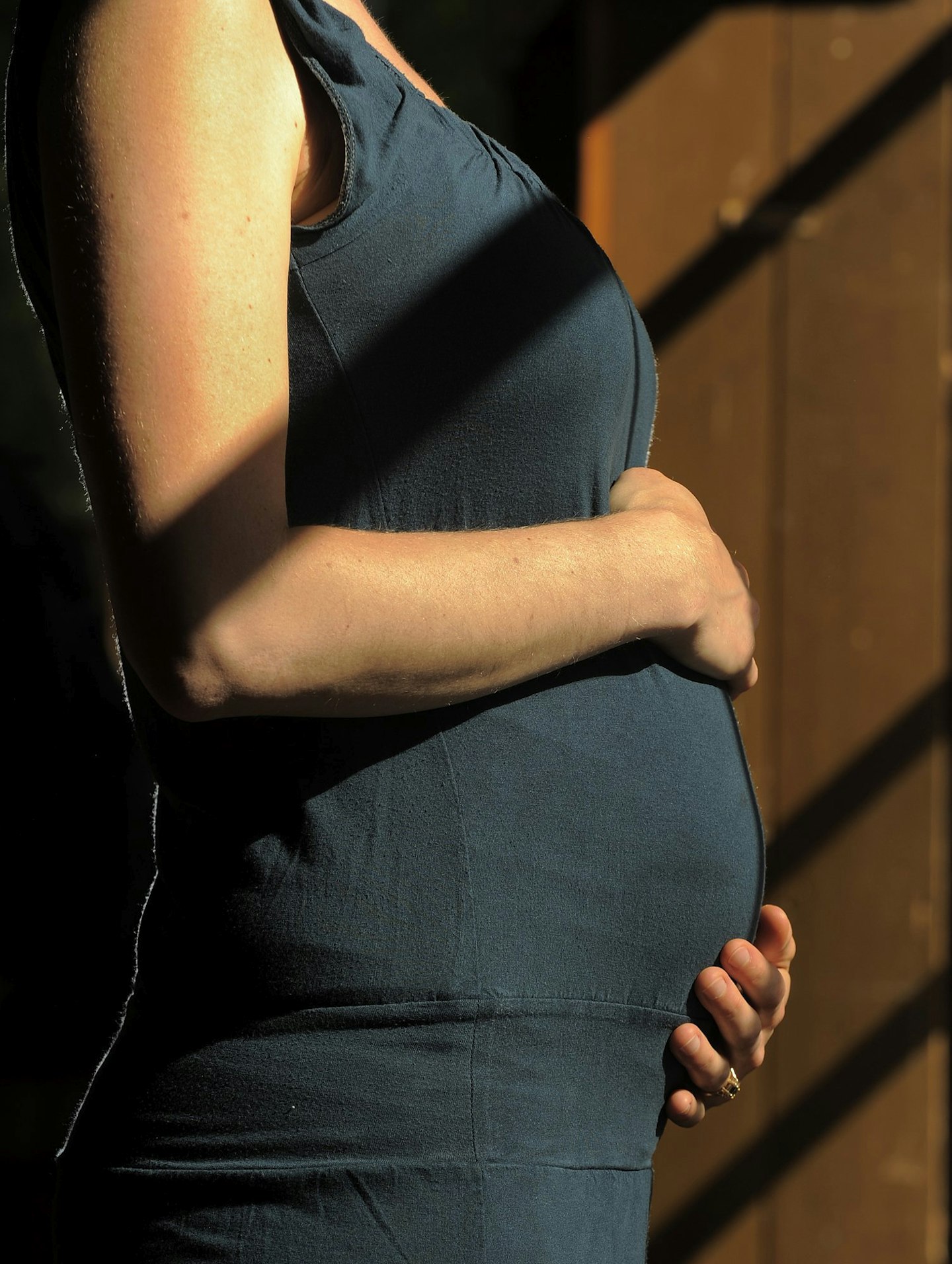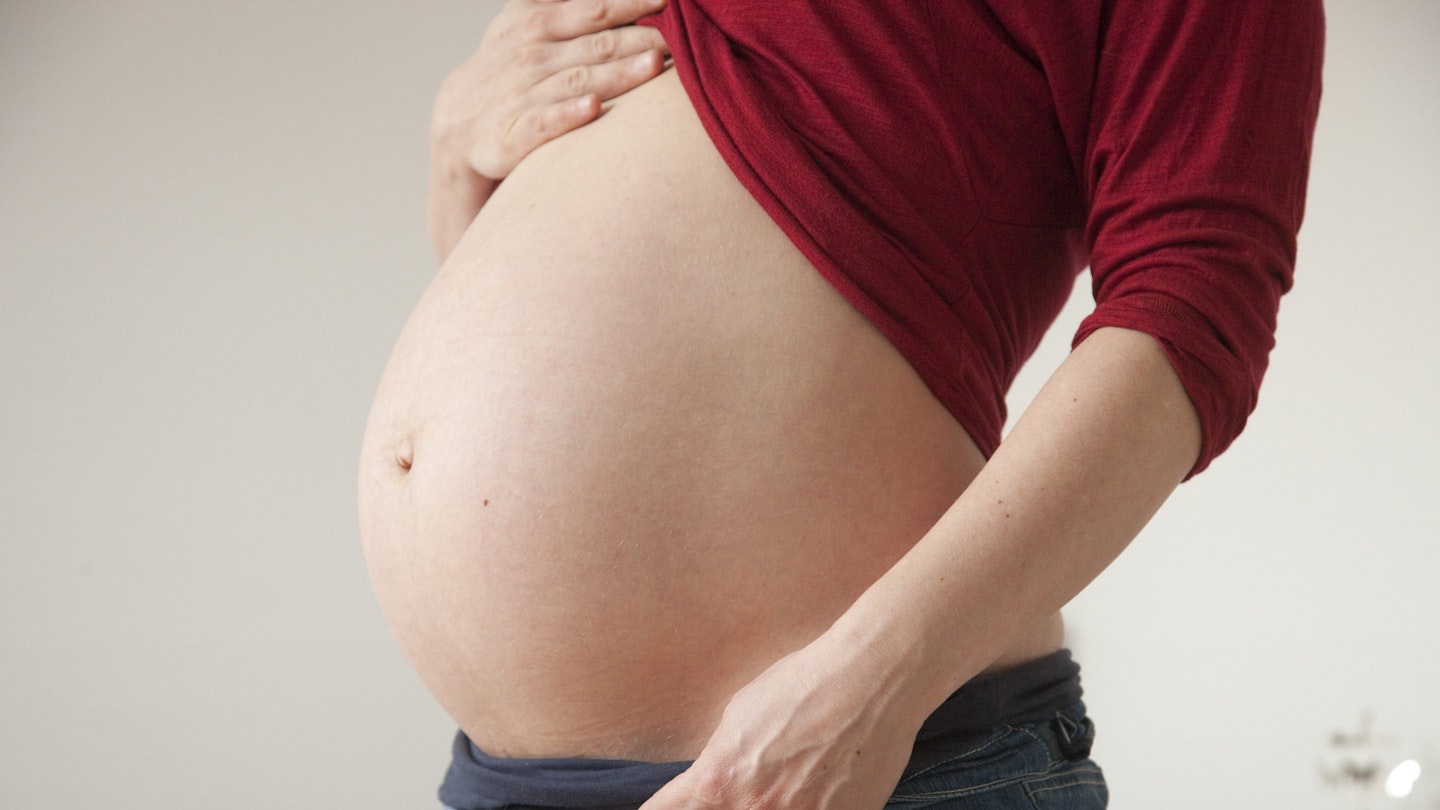It's 3.43am and I should be asleep. I’m eight months pregnant, exhausted and have a raft of deadlines to face in the morning. But I’m not sleeping. Instead, I’m madly googling ‘Can belly piercing infection harm unborn baby?’
Of course, I know that a fully healed piercing scar can’t hurt my baby. Just like I know that those twinges in my hips are just my muscles stretching and that stroking my cat isn’t going to infect me with toxoplasmosis. Yet when the panic strikes, it’s all-consuming and devoid of logic.
I’m suffering from perinatal anxiety – I’d never heard of it until I started looking into it, concerned at the constant catastrophising that had taken over my brain since I saw that blue line on the pregnancy test. While most of us are aware of the warning signs associated with postnatal depression, mental health issues are surprisingly common in the perinatal period – leading up to the birth – but very rarely discussed.
Thankfully, this is changing. Last week, David Cameron announced new guidelines for the National Institute for Health and Care Excellence (NICE) on treating mental health problems in women before, during and after pregnancy. ‘Mental health issues during and after pregnancy are common. More than one in 10 women will experience depression at some point during their pregnancy,’ explains Professor Mark Baker, NICE Centre for Clinical Practice director. ‘Giving women the right treatment at the right time can have a profound effect – not just for the mother, but her family too. The effect of getting this right can last for years.’
For me, pregnancy has been a roller coaster. A difficult early few weeks, during which I experienced regular, crippling stomach pain, eventually led to a trip to A&E and the words ‘possible ectopic pregnancy’. We all made it through and continue to do so – but the spectre of something going wrong is always there.
I am thrilled about the future addition to our family, who is kicking me supportively in the ribs as I type. But with the excitement comes an intense vulnerability. Being pregnant, you are horribly aware of the danger around you – speeding traffic, an icy patch on the pavement. The knowledge that you and you alone are responsible for keeping this small life safe is terrifying. Add in all those hormones (I cried yesterday because my cat brought me a feather) and it’s no surprise that fear can build an unnaturally high wall around your psyche.

So why does nobody talk about this? Researching this piece, I’ve discovered that people I thought were sailing through pregnancy have been signed off work with panic attacks. The physical side effects of childbearing are well-documented, and of course many people feel a crushing fear over labour, but what about the emotional side effects? Giving birth seems like the least of my worries when I’m constantly asking, ‘Will the baby be well? Will I be a good mother? What will happen to my career?’ A lot of women I spoke to felt they should be able to just get on with it and cope – but how? Particularly if it’s your first baby, it can be hard to know when to ask for help. Maternity departments are stretched and appointments are often rushed. Knowing where to draw the line between everyday worries or twinges and potentially serious issues can be really hard. I know I waited until I was crawling on the floor in pain before I felt like I could go to hospital.
Anyone can suffer from perinatal anxiety or depression, but those with a history of miscarriage or panic attacks or those hit by a traumatic or unexpected event are most vulnerable. At 39 weeks, Phillippa Lennox- King, 31, was focused on the upcoming birth, excited about meeting her new baby. Then everything changed with the sudden, devastating news of her father’s death.
‘My reaction when my mum told me set the pattern for how I would deal with the intense grief in that last week of pregnancy,’ Phillippa says. ‘I wailed in pain then felt immediately guilty about how that stress would affect my baby. The greatest impact of the stress was a prolonged birth. I went into labour four days after hearing the news and, unsurprisingly, found it hard to relax – the one thing that helps labour progress. Despite my best efforts, I was entirely overwhelmed by the enormity of my grief. Thankfully, my daughter, Emmeline, has provided huge comfort to all of us. I lost a father, but I know how lucky I was to have gained a daughter and have such support from my family.’
While any pregnant woman might experience perinatal anxiety, you’re particularly susceptible if you’ve suffered from anxiety in the past. For Hayley Hewett, 31, it all began seven years ago, after she was mugged. ‘I had panic attacks that went away after a year,’ she explains. ‘But since I’ve been pregnant, I’ve started to feel anxiety symptoms resurface. In my case, it’s very much down to feeling like I need to protect my unborn child and therefore not putting myself in a situation where I’m vulnerable. This can be anything from avoiding dark streets to not going to sleep until my husband gets home.’
Crucially, Hayley told her midwife about her symptoms. By flagging the fact that she had previously suffered from anxiety, she was automatically referred to a specialist midwife for perinatal mental health. ‘We discussed why my anxiety could be worse during pregnancy and after birth and ways to cope. She also referred me for cognitive behavioural therapy (CBT),’ Hayley told me. ‘I am halfway through my sessions and have learned methods to subdue my anxiety. I aim to make these mechanisms second nature, so my child’s never affected.’
Dr Sarah McMullen, head of research at the National Childbirth Trust (NCT), reiterates the importance of seeking help if anxious feelings begin to dominate your daily life. ‘Starting a new family is a major life event and anxiety is a common response to stress. Women might worry about any number of things: giving birth, coping with a new baby, their own health or the health of their baby, work pressures or their relationship with their partner. Sometimes, there might not be an obvious reason for why someone feels anxious or low, but their feelings should not be dismissed.’
The NCT recently launched a campaign called #BeyondBabyBlues, which aims to encourage people to talk openly about maternal mental health. ‘It’s vital to talk about anxiety – to a midwife, health visitor, GP, family member or friend,’ says McMullen. ‘Talking can reassure women and can encourage them to get the support they need. Early intervention could prevent devastating problems later down the line.’
For me, just researching this article has helped enormously. Speaking to other women and realising that, as well as being potentially the most wonderful time in your life, pregnancy can be the most stressful. That’s important to say.
